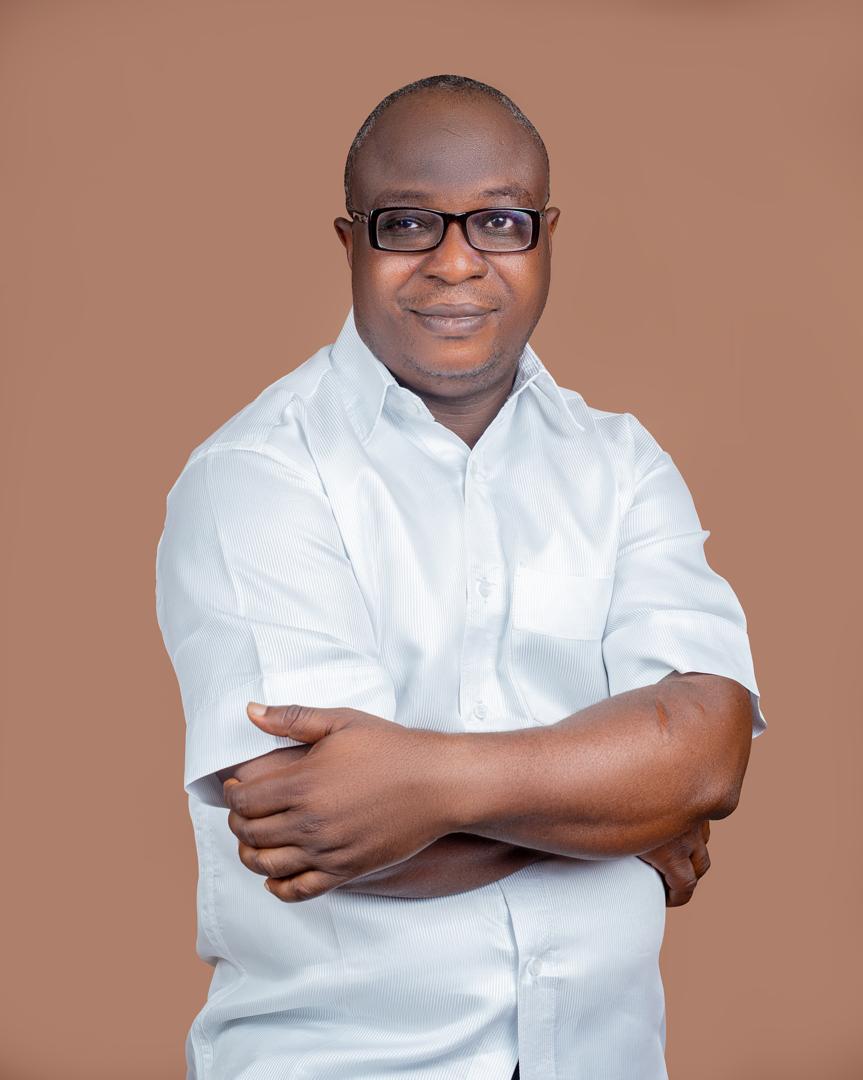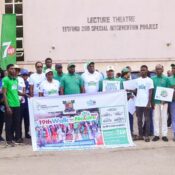
Building Resilient Cities: A Conversation with NCF’s Adedamola Ogunsesan on the Future of Urban Living
As part of activities marking World Habitat Day 2025, the Nigerian Conservation Foundation (NCF) sat with Mr. Adedamola Ogunsesan, Director of Technical Programmes, to discuss how Nigerian cities can navigate the twin challenges of urban migration and climate change. In this conversation, he shares actionable insights on sustainable housing, waste management, and community participation underscoring the need for policies that balance growth with environmental resilience.
Interviewer: How can Nigerian cities like Lagos and Abuja adapt to the growing challenges of urban migration and climate change?
Mr. Ogunsesan: Urban migration is a global phenomenon not unique to Nigeria. From New York to London and Lagos, cities are magnets for economic opportunity, which naturally drives population growth. The real question is how we prepare for it.
For Nigeria, especially in Lagos and Abuja, the key lies in creating climate-resilient urbansystems through government policies. Initiatives like the Lagos Blue Rail and Bus Rapid Transit (BRT) system are excellent examples. When more people use mass transit, the pressure on roads and urban infrastructure decreases. The goal is to provide efficient, sustainable transport that keeps cities functional even as they expand.
“Urban migration isn’t the problem, poor planning is. With smart, resilient systems, population growth becomes an opportunity, not a crisis.” – Mr. Adedamola Ogunsesan.
Interviewer: With over 20 million Nigerians lacking adequate housing, what sustainable approaches can help bridge the housing deficit without harming the environment?
Mr. Ogunsesan: To close the housing gap sustainably, we must build vertically, not horizontally, especially in coastal cities like Lagos where land is scarce. Expanding outward destroys natural buffers and worsens flooding. Building upward preserves green spaces and reduces land pressure.
We must also integrate nature-based solutions into urban design such as flood control systems, urban greenery, and eco-friendly building materials. The Green Recovery Nigeria (GRN) Programme, a 30-year NCF initiative, aligns perfectly with this vision. Through reforestation, afforestation, and natural regeneration, GRN aims to restore 25% of Nigeria’s forest cover. This doesn’t just heal ecosystems—it reduces urban heat, absorbs carbon, and enhances liveability in our cities.
“We can’t keep building outwards and expect nature to cooperate. Green cities grow upward, not outward.” – Mr. Adedamola Ogunsesan.
Interviewer: Flooding and waste management remain major urban issues. What environmental strategies can make our cities more resilient to these recurring problems?
Mr. Ogunsesan: Awareness. Consistent, wide-reaching awareness is the foundation. People must understand that environmental negligence is costly. But awareness alone isn’t enough. Our infrastructure must evolve to handle today’s population realities.
Effective waste management is also critical. As cities grow, so does waste generation. We need to institutionalize circular economy practices that convert waste into resources. Encouraging small-scale enterprises that turn waste into wealth creates jobs and reduces landfill pressure.
Interestingly, floodwaters themselves hold potential—they can power turbines or support controlled irrigation if managed properly. But to do this, we must map floodplains accurately and involve communities in flood risk planning. Participatory early-warning systems will help people respond faster and turn what seems like disaster into opportunity.
“Floods and waste are not just urban problems; they’re untapped resources waiting for smart solutions.”- Mr. Adedamola Ogunsesan.
Interviewer: How can community participation and local innovation contribute to building sustainable and inclusive habitats in Nigeria?
Mr. Ogunsesan: Sustainability only works when people understand it. During one of my field visits to Hadejia, a farmer defined sustainability to me in the simplest way possible: “Chop today, chop tomorrow.” That phrase stayed with me.
Communities must see environmental protection as an investment in their own future, not a distant government agenda. When locals appreciate the ecosystem services around them like water, soil, forest, they become co-managers of sustainability. From there, solutions grow from the bottom up, influencing subnational and eventually national policy.
“True sustainability begins when communities see the environment as part of their survival, not just a background to it.” – Mr. Adedamola Ogunsesan.
Interviewer: Looking ahead, what key policy or environmental actions should Nigeria prioritize to achieve truly resilient and sustainable urban living by 2030?
Mr. Ogunsesan: Urban planning must integrate ecosystem thinking. Each landscape whether coastal, savannah, or arid demands tailored strategies. In lowlands, we should protect wetlands while developing around them. In the north, where desertification is advancing, we need green corridors and afforestation.
The guiding principle should be resilience and adaptability; ensuring our cities can absorb shocks without collapsing. If we design cities with nature, not against it, we’ll have stronger, more livable habitats for generations to come.
“Cities thrive when they grow with nature, not against it. Resilience isn’t built; it is designed.” – Mr. Adedamola Ogunsesan.
Interviewer: Finally, what message would you like to leave with Nigerians this World Habitat Day?
Mr. Ogunsesan: Building sustainable cities isn’t the government’s job alone, it’s everyone’s responsibility. Every act of conservation, every properly disposed waste, and every tree planted adds up. If we each play our part, we can create cities that are not just habitable, but truly alive.
“A sustainable city is a shared dream we must all wake up and build together.” – Mr. Adedamola Ogunsesan.
Interview by Chinelo Okoli. Editing by Olusomi Oduguwa.



